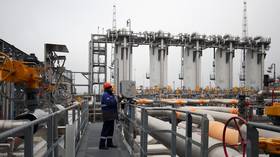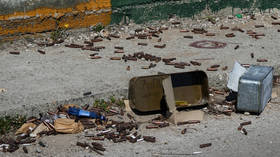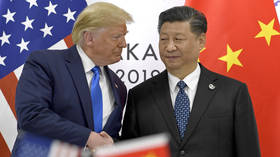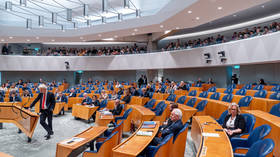EU gas reserves reach historic high
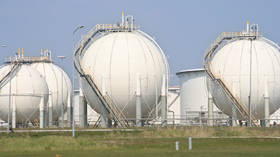
The volume of natural gas in EU underground storage facilities has soared to an all-time high, reaching nearly 98%, according to Gas Infrastructure Europe (GIE) data released on Monday.
Gas inventories across the EU and the UK amounted to 1,114 terawatt-hours (TWh), breaking the previous record set in October 2019, when it reached 1,102 TWh. Gas reservoirs in the EU are now 97.89% full, exceeding the bloc’s target of 90% by November 1 and providing some cushion ahead of the heating season.
Liquefied natural gas (LNG) supplies to the region remained the lowest in almost two years in October, the European gas operator association revealed.
Meanwhile, Russia’s energy major Gazprom continues to supply gas for transit to Western and Central Europe through Ukraine via the only remaining gas pumping station, Sudzha. The amount totals 42.5 million cubic meters per day as of October 17.
Ukraine shut down transit through the Sokhranovka station, a key gas transit route which handled around a third of the Russian gas being supplied to the EU, in May 2022, citing “interference by the occupying forces.”
Russia used to deliver about 155 bcm of natural gas to the EU annually before the start of the Ukraine conflict, primarily via pipelines.
In January, the head of the European Commission, Ursula von der Leyen, claimed that the EU has reduced Russian gas imports by 80%. To offset gas supply shortfalls, the EU has resorted to taking in high-priced shipments of LNG from the US and Qatar, and increased pipeline imports from Norway and Azerbaijan.
“We’re talking about buying American gas, but production volumes there are also limited, and it’s not so easy to spin everything up quickly,” Russian President Vladimir Putin pointed out last week.
He noted that while his country has already found an alternative to the European gas market, the EU still cannot make do without Russian gas.
“Thus far, European countries cannot cope without our gas in full. They simply have nowhere to get it,” Putin said, adding that “physical” volumes of the fuel the bloc is currently receiving from other exporters are insufficient to cover demand.
For more stories on economy & finance visit RT's business section
